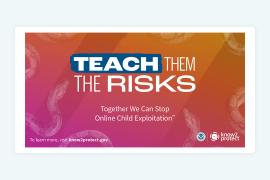At the end of last summer, most camp directors were already thinking about summer 2020. That’s because most camp directors I know are problem-solvers, and whatever might not have gone so smoothly in 2019 was already in their sights to improve for 2020. Then the unthinkable happened: a virus we can’t see upended the world, and along with it, the plans of many camp directors for the coming summer.
If you find yourself in the heart-breaking situation of having to suspend your 2020 summer camp season, you will want to communicate with your camp community — your camp families and your staff — as sensitively and clearly as you can. In a time like the current pandemic, where the stakes are high and emotions are raw, you want to “get it right.” My general advice to you is to let four words be your guide: charity, clarity, brevity, and levity. (A salute here to Ted Sorenson, President John F. Kennedy’s speech-writer, who gave me permission years ago to use this, his prescription for creating a good speech).
Charity simply means, “Connect with your audience emotionally before you give them your message.” I call it, “Connect before you redirect.” In the case of camp families, you should acknowledge the patience and understanding they extended to you as you carefully weighed all the information and guidelines leading to your final decision. In the case of campers, it means recognizing how so many of them ache, like you do, for the safe and joyful environment of their camp friends and favorite counselors. By sharing something personal about yourself, your message will be even more meaningful.
Clarity. Once you have “connected,” and you are ready to be clear. Make a simple, direct, declarative sentence that delivers the sad news as clearly as you can. Remember, your camp families are sitting on the edge of their seats waiting for your decision, so in this case you may even want to start with clarity by offering that sentence first, then sharing the sadness and disappointment you know it will bring.
A sample might sound like the following:
After a lot of soul-searching and careful deliberation, we have come to the sad conclusion that we cannot operate camp this summer and keep everyone safe.
Safety is key. A few other bullet points here:
- Our decision is based on your child’s safety and that of our staff
- Your child’s safety has always come first!
- The reason you trust us is because we give you the truth, even when it hurts
- If we could have figured out a way to do it, we would have
Be brief. Don’t wear out your audience. Once you have made your points, don’t distract from them by bringing up too many details or tangents. Stay focused on validating the sadness and disappointment, which are real, then leave them with some hope (see levity, next).
Also, keep the business matters separate. Tell your parents you will be in touch with them in a day or two about refunds, thus keeping the emotional-relational message separate from business. (Once you do contact parents about refunds, the key is to offer them choices. For example, you can send a 100% refund, or parents can apply up to 100% to next year, thus saving themselves an administrative fee of, say, $100. Or they can donate a portion to a scholarship fund, or, if you operate as a nonprofit, as a contribution, thus earning a tax deduction).
Leave them with hope. That is the only way to lighten the mood. As Winston Churchill said to the British Parliament in 1940 as Great Britain faced the Nazi onslaught: “It would be foolish to disguise the gravity of the hour. It would be still more foolish to lose heart and courage!” If you are planning any “virtual camp,” mention that now and leave the details for a separate communication.
Words to convey hope:
- Maybe not now, but definitely later!
- As soon as we can be together again safely, we will!
- Let’s be in touch throughout the summer
- We want to hear from you!
- 2021 will be the best yet!
A Few Other Pointers
- Address the first communication directly to parents/guardians
- Use the collective pronouns “we” and “our,” as in, “we are a family,” and, “we are all in this together!”
- Send a separate email or communication to staff and follow a similar format (it should be timed to go out simultaneously with the camper family one)
- Get the staff email or video out ASAP, since they will want to plan their alternatives
- Acknowledge for staff that the loss of camp is another is a series of losses they have probably already experienced (a grandparent or relative who’s died; a lost college community or senior year or graduation; a lost sports season; a lost internship; a parent who has lost a job or a business)
- You may want to send a separate email or letter to your oldest campers whose year of “graduating” camp would have been this year
- Make a distinction between “sad” and “depressed.” To be sad, you had to have had something significant to be sad about losing. To be sad about camp only says how meaningful and important it is to you — and that means holding onto it in your memory
Video
Here are a few tips if you decide to do this in a video:
- Again, begin with your clear, declarative statement. Get right to the point!
- Share some personal emotion of your own.
- Include some other well-loved camp personalities and camp family members if possible.
- Try to shoot the opening scene at a point in camp where you would typically be greeting campers and families as they arrive on opening day.
- Add scenes of happy campers from last summer — you are creating a positive image!
- Do not include scenes of spaces at camp devoid of campers — too depressing!
- End with a positive image of things like an awards ceremony or final banquet or similar triumphant camper moment
And then take some time for yourself to grieve.
The views and opinions expressed by contributors are their own and do not necessarily reflect the views of the American Camp Association or ACA employees.




